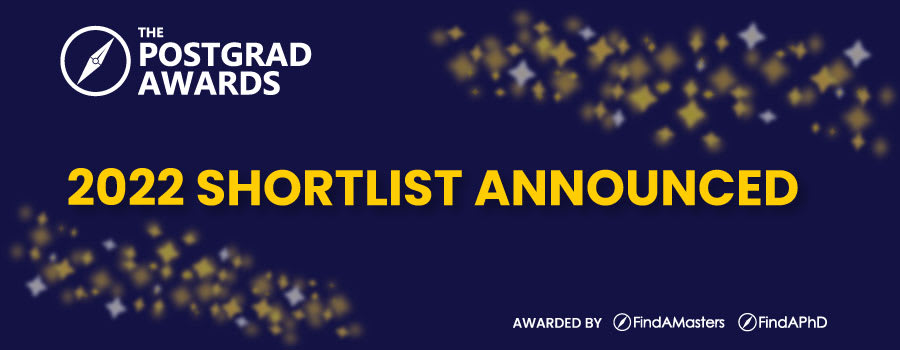Meet 2021 Postgrad Awards winners
Alongside Emma’s impressive academic transcript (she achieved an average of 90% in her final year of an MPhys in Chemical Physics!), she has made a remarkable contribution to her wider community through extra-curricular activities. She organised multiple inclusivity-themed events during her time as social sec for Sheffield University’s Women’s Football club and participated in a summer school promoting women in Physics.
The judges were particularly impressed by Emma’s positivity in confronting everything that was thrown at her – she quickly adapted to practical challenges in completing her research posed by the Covid-19 pandemic and has not allowed personal struggles to stop her thriving, both academically and beyond!
Described by our judges as a future leader in the making, Toluwalase is a passionate advocate for equitable access to quality education within STEM. To this end, he co-started the Ganglion Initiative, an education-based social enterprise in Africa, which has reached over 8,000 students to date.
Toluwalase’s PhD research explores the molecular basis of preeclampsia, a disease which effects millions of women around the world, with the aim of improving diagnosis and treatment. He has presented at many conferences, both nationally and internationally, and has been described by colleagues as willing to go the extra mile, both inside and out of the laboratory.
Dr Will Mason is the programme director of the MA in Social Research as well as the designated personal tutor, supporting the educational and welfare needs of the student body.
Dr Mason went above and beyond for his students during the pandemic. As well as teaching weekly face-to-face sessions, he recorded separate videos for those who were shielding or had caring responsibilities, as well as putting on weekly check-in sessions in addition to normal office hours to support his students. He also did fantastic work in decolonising the curriculum, leading to new ways of looking at research methods.
Outside of work, he volunteers as a youth worker at a local gym for young people in Sheffield as part of the Unity Gym Project, bringing real-life examples into his teaching and inspiring the next generation.
The judges were impressed with how Will adapted his teaching during the pandemic with heart and creativity to provide a tailored experience for his students whilst applying his research to his valuable community work.
Malcolm White is Professor of Biochemistry at the University of St Andrews. His ethos for PhD supervision is to provide students with the support and opportunities they need to help them reach their full potential and, crucially, to enjoy science. He’s helped multiple students with getting their names on papers, receiving early funding and giving them the confidence to develop their own ideas.
Outside of his PhD supervisor duties, Professor White is involved in multiple projects within the community including the "First Chances" outreach project which introduces school children from underprivileged backgrounds to research at university, and another that teaches science in prisons.
The judges were impressed not just by Professor White's accomplishments as a gold standard PhD supervisor, but also by his commitment to outreach activities in schools and prisons.
In line with the University of Lincoln’s environmental goals, the Postgraduate Team developed a campaign which offered a £3,000 scholarship to help the successful student to be an environmental champion, and pledged to plant a tree for each applicant that applied at an Open Day.
With over 150 people attending the postgraduate open day and 31 applications submitted, the campaign raised the profile of the University of Lincoln's climate advocacy and helped support 25% more applications and 21% more enrolments. They continued the environmental pledge campaign for the rest of the academic year, offering more opportunities for tree planting and sending students that accepted their offer an eco-friendly jumper made from recycled bottles.
The judges praised the University of Lincoln for prioritising its climate emergency agenda alongside postgraduate student recruitment efforts.
Designed by psychologists, researcher development professionals, and PGR students at the University of Plymouth, the Researcher Toolkit is a proactive, positive, and preventative approach to PGR mental health. It focuses on key research skills and tips, which include messaging around life-work balance, self-care and positive research culture.
The Toolkit is open-source and freely available to other universities wanting to benefit from it. It includes resources for five classroom workshops and five webinar versions, as well as training materials for PGR Workshop Leaders.
The judges were impressed with how Plymouth's Wellbeing Toolkit specifically targeted needs of postgraduate students and will have a wider impact across other institutions who choose to take it onboard.

 Continue with Facebook
Continue with Facebook


